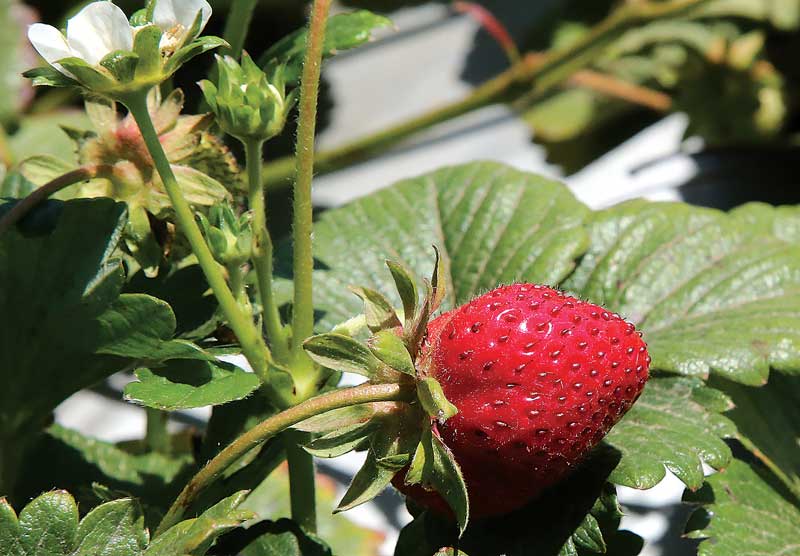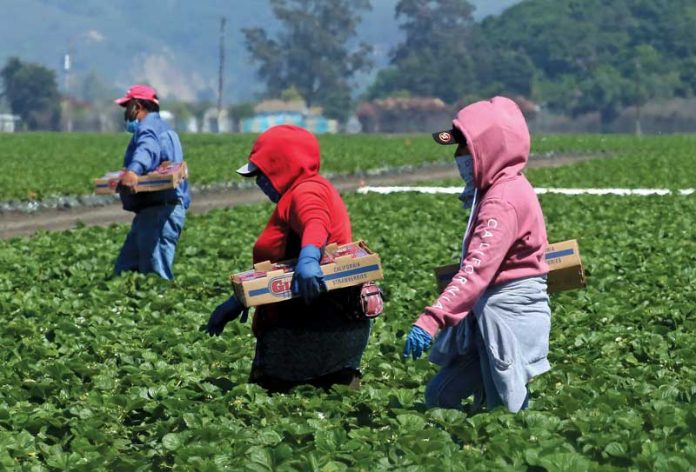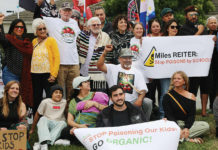According to the California Strawberry Commission, about 90% of all strawberries in the U.S. are grown in California.
The fruit thrives in the state, due to its need for year-round moderate weather, which allows its roots to grow strong and stable.
On the Central Coast, consistent sunny days and foggy nights even during the summer months give the crop a level of protection from extremely high and low temperatures.
“We have the absolute perfect climate to grow strawberries here,” said Chris Christian, California Strawberry Commission (CSC) senior vice president, who reported that the 2021 season is looking strong.
“Overall, right now things are going very well,” she said. “We’re at peak season moving into the second part of the summer.”
Christian admitted that the industry did face some challenges in the early part of the year; mainly delays due to weather. Most regions were for a while looking at a three-week delay in production.
But getting through that made the plants even stronger, she said.
“One of the great things with the recent cooler weather is that the quality of our berries has been outstanding,” she said. “With great flavor, and a high fruit quality.”
While strawberries are grown year-round in California, their primary harvest season lasts from mid-spring through fall. In mid-summer, farmers send out about 6 million trays per week.
That is compared to the offseason (November-February, depending on weather), which produces about 1 million trays per week.
“We have a very long season here in California,” Christian said. “Farmers just keep harvesting all the way until we get rain. And in Santa Maria [Valley], a second crop is often planted in the summer, for a new crop in the fall.”
The pandemic had brought hardships to the strawberry and greater agriculture industry in 2020. A sudden drop in production as the food supply chain began to break down resulted in backlogs of berries that went to waste.
But now, as the effects of Covid-19 wane, strawberries have bounced back, and are now more popular than ever, Christian says.
“Coming out of Covid … we have noticed a whole other level of strong demand for strawberries,” Christian said. “People are still looking for foods with good immune support … and strawberries are key for that. It’s exciting.”

Strawberries are high in potassium, manganese, folate (vitamin B9), and fiber. They can help with heart health, and keep blood pressure low, and their bright red color indicates that they are packed with compounds that benefit vascular and metabolic health.
They can also help prevent diabetes; a serving of strawberries (8 large) only has about 50 calories and eight grams of sugar.
“[Strawberries] are now the largest source of vitamin C in Americans,” Christian said. “We should be really proud of that … and of the hard work of our farmers and farmworkers in bringing the fruit to America’s plates.”
Watsonville’s premier festival returns
On Aug. 8 the Watsonville Strawberry Festival will return, after being canceled last year due to Covid-19.
This annual event began in 1995 as a fundraiser to help downtown Watsonville recover from the destruction of the 1989 Loma Prieta Earthquake. Now, it will act as a support to local nonprofits and other groups, many of whom were hurt by the pandemic.
The festival, which will be held from 11am-5pm, will offer people a chance to sample various strawberry delicacies and other food, enjoy live music, family activities, browse local art vendors and more.
Unvaccinated individuals are strongly encouraged to wear a face covering while in large crowds, and to stay home if experiencing any Covid-19 symptoms.
For information about the festival go here.












